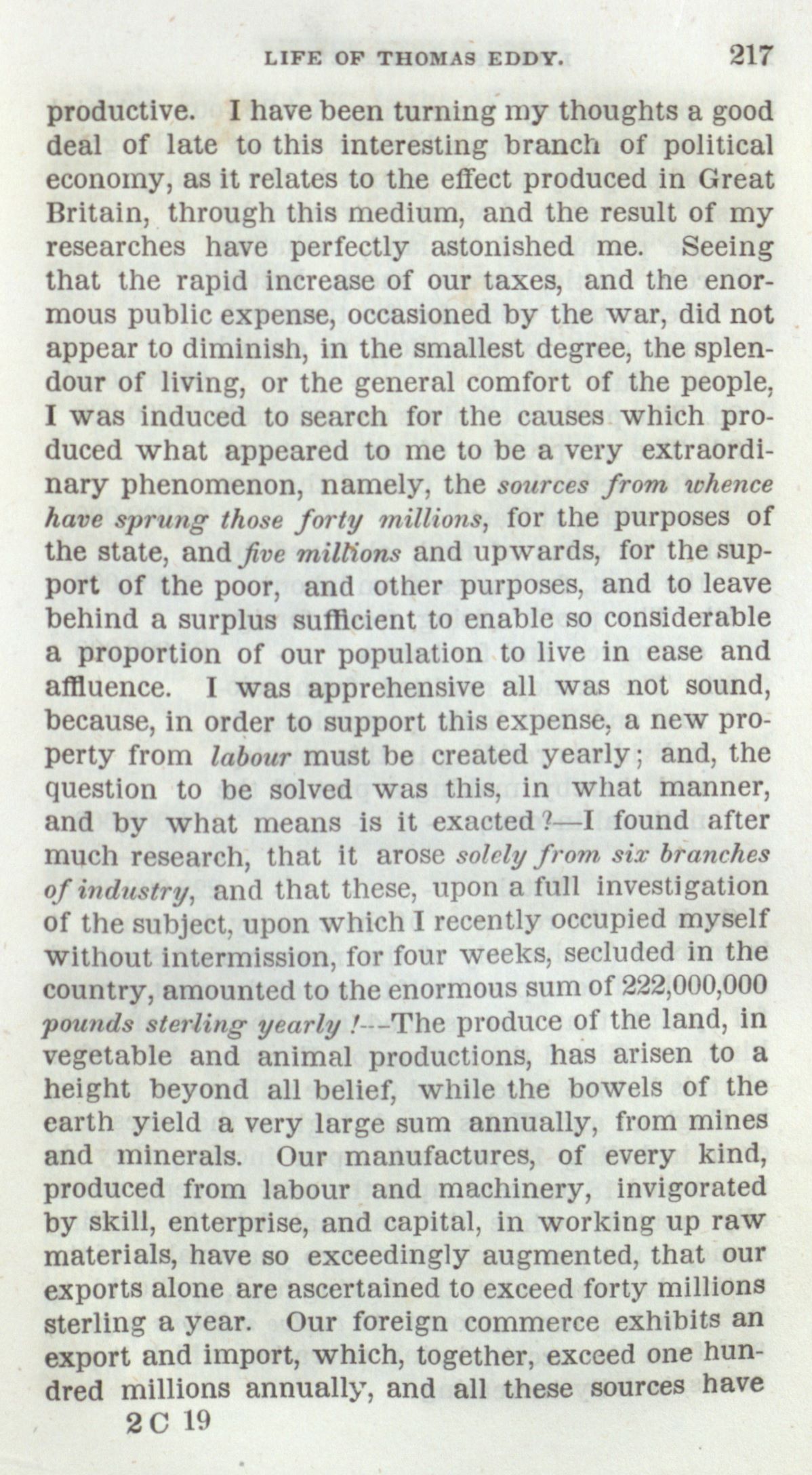productive. I have been turning my thoughts a
good
deal of late to this interesting branch of
political
economy, as it relates to the effect produced in
Great
Britain, through this medium, and the result of my
researches have perfectly astonished me. Seeing
that the rapid
increase of our taxes, and the enor-
mous public expense, occasioned
by the war, did not
appear to diminish, in the smallest degree, the
splen-
dour of living, or the general comfort of the people,
I
was induced to search for the causes which pro-
duced what appeared
to me to be a very extraordi-
nary phenomenon, namely, the sources from whence
have sprung those forty
millions, for the purposes of
the state, and five millions and upwards, for the
sup-
port of the poor, and other purposes, and to leave
behind a
surplus sufficient to enable so considerable
a proportion of our
population to live in ease and
affluence. I was apprehensive all was
not sound,
because, in order to support this expense, a new
pro-
perty from labour must be created
yearly; and, the
question to be solved was this, in what
manner,
and by what means is it exacted?—I found after
much
research, that it arose solely from six
branches
of industry, and that these, upon a full
investigation
of the subject, upon which I recently occupied
myself
without intermission, for four weeks, secluded in
the
country, amounted to the enormous sum of 222,000,000
pounds sterling yearly!-—The produce of the
land, in
vegetable and animal productions, has arisen to
a
height beyond all belief, while the bowels of the
earth yield
a very large sum annually, from mines
and minerals. Our
manufactures, of every kind,
produced from labour and machinery,
invigorated
by skill, enterprise, and capital, in working up
raw
materials, have so exceedingly augmented, that our
exports
alone are ascertained to exceed forty millions
sterling a year. Our
foreign commerce exhibits an
export and import, which, together,
exceed one hun-
dred millions annually, and all these sources
have

